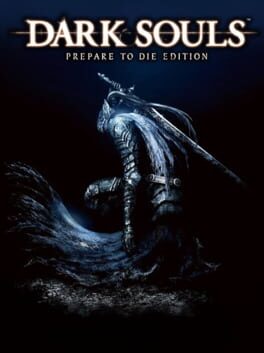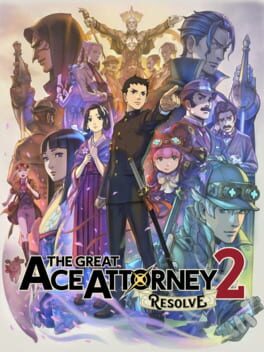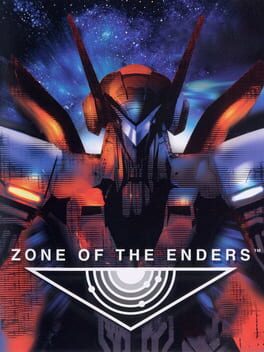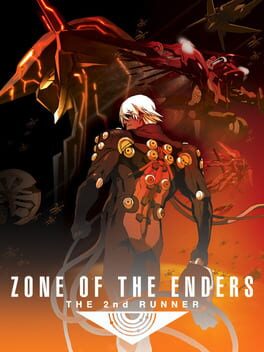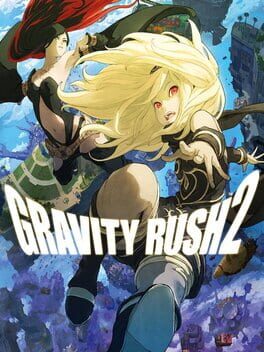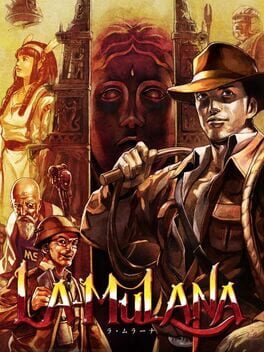I_Know_A_Ghost
4 reviews liked by I_Know_A_Ghost
A Link to the Past. A monolith of the Zelda franchise, alongside Ocarina of Time, that simultaneously solidified the series formula and set its subsequent sequels on a path that would take 26 years to break free from. Nowadays a divisive title between the fanbase, its reputation for turning the series into a restrictive, hand holding, linear affair is mostly undeserved and severly exagerated. While lacking the first screen statement of the original Legend of Zelda and guiding you through a small set of introductory dungeons with little deviation before opening itself up, ALttP still retains the exploration DNA from its predecessors.
Allowing for a surprising amount of choice in how you tackle its questline provides numerous fun guideless discoveries such as the Zora waterfall or the warp travel bird, and without the intrusive tutorialization and puzzle signalling that would later on plague the franchise, players are left to their own devices to figure out dungeon entry enigmas and solve meticulously puzzle box designed dungeons that do not hold any punches in their mental and physical challenge. In what I consider a brilliant decision, in order to be able to defeat the final boss after a gauntlet of the hardest rooms in the game, you need to have had completed a series of side quests that you would think were just optional content, a devious trick that would make the NES games proud.
Having said that, I unfortunately do tend to agree with most of the critical reevaluation that ALttP has recently gotten from its detractors. While the colorful and detailed Super Nintendo presentation lends a newly found personality to the series, it also ends up removing much of the alluring mystery and mystique of its more simple and abstract looking prequels. The more perceptible aesthetic is itself a double edged sword that easily signals what you are allowed to engage with and what is noise to be ignored, a harmless consequence of technology advancement that ironically ends up reducing the scope of ALttP's map, despite how much bigger it is than Zelda 1 and 2. It's true that ALttP allows room for the player to decide which path he wants to take, but that certainly becomes a harder decision to make when you can just open your map at any time and realize you are going the wrong way.
Make no mistake in assuming I am implying that A Link to the Past forever strayed the Zelda franchise away from its strength and potential, as that's not the point I'm trying to make. But it's hard to deny that the series philosophy took a turn here, in the same manner that something like DMC3 would forever rob the franchise of another DMC1 happening. And maybe it was for the best, as moments like finally being able to pick up the Master Sword in the middle of a shady forest represent some of the most awe-inspiring and affecting iconography the series offered. The true mark of A Link to the Past's success is in the ability of the franchise to ride on its coattails for almost 30 years.
Allowing for a surprising amount of choice in how you tackle its questline provides numerous fun guideless discoveries such as the Zora waterfall or the warp travel bird, and without the intrusive tutorialization and puzzle signalling that would later on plague the franchise, players are left to their own devices to figure out dungeon entry enigmas and solve meticulously puzzle box designed dungeons that do not hold any punches in their mental and physical challenge. In what I consider a brilliant decision, in order to be able to defeat the final boss after a gauntlet of the hardest rooms in the game, you need to have had completed a series of side quests that you would think were just optional content, a devious trick that would make the NES games proud.
Having said that, I unfortunately do tend to agree with most of the critical reevaluation that ALttP has recently gotten from its detractors. While the colorful and detailed Super Nintendo presentation lends a newly found personality to the series, it also ends up removing much of the alluring mystery and mystique of its more simple and abstract looking prequels. The more perceptible aesthetic is itself a double edged sword that easily signals what you are allowed to engage with and what is noise to be ignored, a harmless consequence of technology advancement that ironically ends up reducing the scope of ALttP's map, despite how much bigger it is than Zelda 1 and 2. It's true that ALttP allows room for the player to decide which path he wants to take, but that certainly becomes a harder decision to make when you can just open your map at any time and realize you are going the wrong way.
Make no mistake in assuming I am implying that A Link to the Past forever strayed the Zelda franchise away from its strength and potential, as that's not the point I'm trying to make. But it's hard to deny that the series philosophy took a turn here, in the same manner that something like DMC3 would forever rob the franchise of another DMC1 happening. And maybe it was for the best, as moments like finally being able to pick up the Master Sword in the middle of a shady forest represent some of the most awe-inspiring and affecting iconography the series offered. The true mark of A Link to the Past's success is in the ability of the franchise to ride on its coattails for almost 30 years.
Dark Souls
2011
in contrast to it's reputation in some circles as a sophisticated and unapproachable masterwork that only the most capable in the medium can dare claim to have really conquered, revisiting dark souls in 2022 has the same essential feel as revisiting elric of melnibone in the same year. dark souls is pure pulp fantasy, absolutely lascivious in it's enthusiasm to play the hits and delight in the playing of them. there's no attempt to hide the basic moods and beats the game is playing, instead it simply enjoys the classics with an infectious delight. about the only thing that isn't pulp about dark souls' fantasy is the sexism, which is mostly just deeply boring and conservative instead of being as weird and outrageous as a lot of those old paperbacks could be.
undead burg. darkroot basin. lord of light. the abyss. the dark. fire. the sun. demon ruins. Big Hat Logan. fuckin blighttown. it's deeply mundane in a way that really works. there's no Tarnished-esqe straining towards the illusion of novelty when there is none, none of the worldbuilding has any facade or pretense to it, it is what it is on the tin, which is exactly the spirit of a pulp novel that promises swords and legends and tits and proceeds to deliver exactly that, but with a visual artistry and methodically slow pace that all but forces the player to take the time to appreciate why we like these base concepts in the first place. getting Cursed in The Depths and having to spend not-inconsiderable time on a grueling backtrack up to The Undead Parish to talk to Oswald to get it cured is not a traditionally "fun" or "novel" journey but it is one that invites consideration of every step of that journey. it is sophisticated appreciation of "junk food" art, and that is just quintessential Video Games to me.
the game's writing is (mostly) wonderfully unpretentious, in stark contrast to it's most ardent fans, fans who have done a tremendous disservice to the game's narrative by archiving it in the form of videos and wikis that tear it from the aforementioned pacing and stunning visual direction that brings it life and meaning. a lore wiki about the primorial serpent kaathe and his darkstalkers in the abyss would read like the rote fantasy claptrap that it ultimately fundamentally is, but the way the game deploys it, the way it hides Kaathe and what he has to say from the standard progression of the journey of the Chosen, the way the Abyss and the Dark is depicted as a literally blank void, a Nothingness that exists totally apart from our conception of the world as we can possibly conceive of it, that is what makes these concepts compelling.
though admittedly, the game hardly does itself any favors in the honestly quite weak DLC, which recasts the Dark from a compelling evocation of the unknown, and literalizes it as a Spooky Cave with a Fucked Up Guy inside that spreads Corruption Juice that turns people into Monsters. dark souls works because it puts in the work to make concepts like this visually and poetically compelling, but the dlc is much more traditionally interested in the exposition of Lore as a beginning and end, and demonstrates the very thin line between Compelling Pulp Fantasy and Drearily Rote Pulp Fantasy. artorias of the abyss, for better or worse, for good or ill, feels completely haunted by the future of Fromsoft, and feels at odds with what I found so loveable about dark souls upon this revisit.
the story and world of dark souls is nothing you haven't seen before if you're even lightly read in fantasy and mythical literature. but because it deeply invests in the presentation of and love of these things without pretension or subversion, through the delightfully shonky and functional UI and the warm PS3 sheen, it works. dark souls knows that sometimes, we just want to read about elric of melnibone, the eternal champion, brooding on his ruby throne while the Lord of Dragon Cave scowls from across the court. i don't think i'll ever love it like i love it's younger, weirder, rougher, moodier sibling, but it'll always make me smile.
undead burg. darkroot basin. lord of light. the abyss. the dark. fire. the sun. demon ruins. Big Hat Logan. fuckin blighttown. it's deeply mundane in a way that really works. there's no Tarnished-esqe straining towards the illusion of novelty when there is none, none of the worldbuilding has any facade or pretense to it, it is what it is on the tin, which is exactly the spirit of a pulp novel that promises swords and legends and tits and proceeds to deliver exactly that, but with a visual artistry and methodically slow pace that all but forces the player to take the time to appreciate why we like these base concepts in the first place. getting Cursed in The Depths and having to spend not-inconsiderable time on a grueling backtrack up to The Undead Parish to talk to Oswald to get it cured is not a traditionally "fun" or "novel" journey but it is one that invites consideration of every step of that journey. it is sophisticated appreciation of "junk food" art, and that is just quintessential Video Games to me.
the game's writing is (mostly) wonderfully unpretentious, in stark contrast to it's most ardent fans, fans who have done a tremendous disservice to the game's narrative by archiving it in the form of videos and wikis that tear it from the aforementioned pacing and stunning visual direction that brings it life and meaning. a lore wiki about the primorial serpent kaathe and his darkstalkers in the abyss would read like the rote fantasy claptrap that it ultimately fundamentally is, but the way the game deploys it, the way it hides Kaathe and what he has to say from the standard progression of the journey of the Chosen, the way the Abyss and the Dark is depicted as a literally blank void, a Nothingness that exists totally apart from our conception of the world as we can possibly conceive of it, that is what makes these concepts compelling.
though admittedly, the game hardly does itself any favors in the honestly quite weak DLC, which recasts the Dark from a compelling evocation of the unknown, and literalizes it as a Spooky Cave with a Fucked Up Guy inside that spreads Corruption Juice that turns people into Monsters. dark souls works because it puts in the work to make concepts like this visually and poetically compelling, but the dlc is much more traditionally interested in the exposition of Lore as a beginning and end, and demonstrates the very thin line between Compelling Pulp Fantasy and Drearily Rote Pulp Fantasy. artorias of the abyss, for better or worse, for good or ill, feels completely haunted by the future of Fromsoft, and feels at odds with what I found so loveable about dark souls upon this revisit.
the story and world of dark souls is nothing you haven't seen before if you're even lightly read in fantasy and mythical literature. but because it deeply invests in the presentation of and love of these things without pretension or subversion, through the delightfully shonky and functional UI and the warm PS3 sheen, it works. dark souls knows that sometimes, we just want to read about elric of melnibone, the eternal champion, brooding on his ruby throne while the Lord of Dragon Cave scowls from across the court. i don't think i'll ever love it like i love it's younger, weirder, rougher, moodier sibling, but it'll always make me smile.
Chrono Trigger
1995
I have always felt that Chrono Trigger earns its acclaim by what it doesn’t do. Really, the game feels downright barebones when comparing it to other RPGs of the time. Think about a massive game like Final Fantasy 6. What doesn’t that epic have? With dungeons within dungeons, two massive worlds to explore, and a titanic number of characters, a game like Chrono Trigger should not compete with Final Fantasy’s epic scale. Yet it does. So, how is it that Chrono Trigger can stand toe-to-toe with a game of that magnitude, maybe even surpass it?
By all accounts, Chrono Trigger should make people angry with its simplicity and restrictive gameplay. Up until the 11th hour, the story rides the rails. The five worlds you travel to are just window dressing to the next story event. When the game does open and allow you a bit of time travel freedom, it comes in the form of a handful of side quests. Most of these quests are small. Pick a quest, travel to a time period, kill a boss, get loot, the end. Lesser games would be criticized for the lack of content, but not Chrono Trigger. Why? The answer is intent.
Chrono Trigger has a very specific gameplan. It wants things to matter. No fluff. No roaming the world for collectables. No super boss exists just for the sake of the challenge. Every event, boss, and special item serves the story in some way. The rainbow shell side quest serves as a great example. You fight powerful bosses to get the most powerful gear, but the quest also uncovers a plot to usurp the throne. And this isn’t a plot tossed in out from left field either. It has specific connections to story events from way back at the beginning of the game, and it provides the Chancellor with motivations for his actions.
Each scene or location is planned out and has a purpose. At the Millennial Fair, you meet Marle. Together you take part in seemingly mindless tasks before meeting Lucca and starting the story proper. But these seemingly mindless tasks resurface at Crono’s trial and have story implications. When the time portal whisks away Marle to parts unknown, Lucca doesn’t take a day to gameplan with you or have a crisis of conscious about her machine. Nope. Crono gets on that tele-pad and off you go. When the game risks becoming monotonous, it throws in a race through the future wastelands. That is Chrono Trigger’s efficiency.
Character moments are quick, but impactful. Frog needs only a single scene to show us why he fights Magus but doubts his abilities. We don’t need more than that. No need to monologue or tell the player over and over about his motives. The game doesn’t even give him time to do so, because when he gets the Hero’s Medal and regains his confidence, its off to Magus’ castle. We barely need to hear about Magus’ reasons when he joins. His whole story was interlaced within the plot.
The gameplay also embraces this feeling of focus. Enemies move about visibly onscreen and most of the time can be avoided. Chrono Trigger basically asks you what you want to focus on in the moment. Need XP? Go fight. If not, then you move on. It simply does not have the time to surprise you with random battles every 5 seconds. Though some fights are scripted, they are the exception, not the rule.
I could go about the career defining music by Mitsuda, or the beautiful art by Toriyama, but I’ll let the countless other reviews handle that. To me, the success of Chrono Trigger lies in is design philosophy – a simplicity rarely found in modern games and especially the JRPG genre.
By all accounts, Chrono Trigger should make people angry with its simplicity and restrictive gameplay. Up until the 11th hour, the story rides the rails. The five worlds you travel to are just window dressing to the next story event. When the game does open and allow you a bit of time travel freedom, it comes in the form of a handful of side quests. Most of these quests are small. Pick a quest, travel to a time period, kill a boss, get loot, the end. Lesser games would be criticized for the lack of content, but not Chrono Trigger. Why? The answer is intent.
Chrono Trigger has a very specific gameplan. It wants things to matter. No fluff. No roaming the world for collectables. No super boss exists just for the sake of the challenge. Every event, boss, and special item serves the story in some way. The rainbow shell side quest serves as a great example. You fight powerful bosses to get the most powerful gear, but the quest also uncovers a plot to usurp the throne. And this isn’t a plot tossed in out from left field either. It has specific connections to story events from way back at the beginning of the game, and it provides the Chancellor with motivations for his actions.
Each scene or location is planned out and has a purpose. At the Millennial Fair, you meet Marle. Together you take part in seemingly mindless tasks before meeting Lucca and starting the story proper. But these seemingly mindless tasks resurface at Crono’s trial and have story implications. When the time portal whisks away Marle to parts unknown, Lucca doesn’t take a day to gameplan with you or have a crisis of conscious about her machine. Nope. Crono gets on that tele-pad and off you go. When the game risks becoming monotonous, it throws in a race through the future wastelands. That is Chrono Trigger’s efficiency.
Character moments are quick, but impactful. Frog needs only a single scene to show us why he fights Magus but doubts his abilities. We don’t need more than that. No need to monologue or tell the player over and over about his motives. The game doesn’t even give him time to do so, because when he gets the Hero’s Medal and regains his confidence, its off to Magus’ castle. We barely need to hear about Magus’ reasons when he joins. His whole story was interlaced within the plot.
The gameplay also embraces this feeling of focus. Enemies move about visibly onscreen and most of the time can be avoided. Chrono Trigger basically asks you what you want to focus on in the moment. Need XP? Go fight. If not, then you move on. It simply does not have the time to surprise you with random battles every 5 seconds. Though some fights are scripted, they are the exception, not the rule.
I could go about the career defining music by Mitsuda, or the beautiful art by Toriyama, but I’ll let the countless other reviews handle that. To me, the success of Chrono Trigger lies in is design philosophy – a simplicity rarely found in modern games and especially the JRPG genre.



